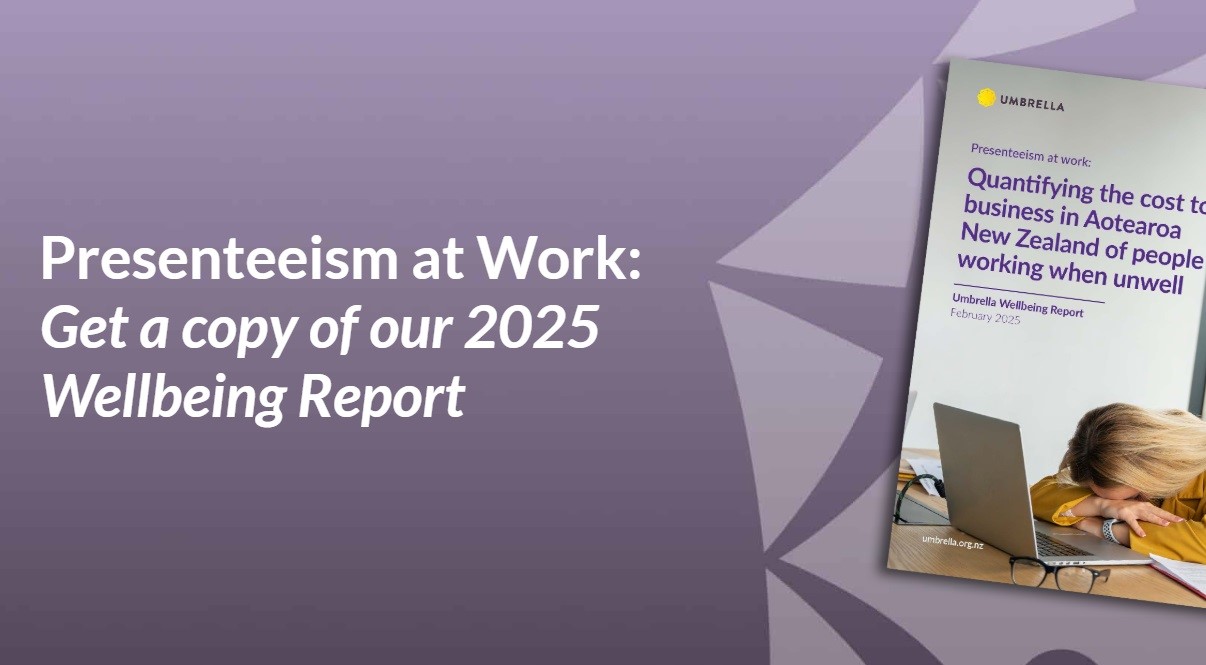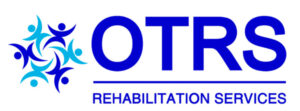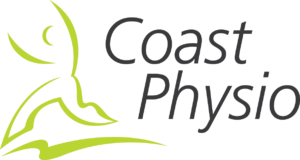New Zealand businesses are losing billions of dollars a year due to unwell workers pushing through instead of taking time to recover.
In the latest Umbrella Wellbeing Report, new research has revealed the staggering impact of presenteeism—where employees continue to work while physically or mentally unwell—on businesses across New Zealand.
While absenteeism (people taking sick leave) is widely recognised as a workplace challenge, presenteeism flies under the radar, quietly eroding productivity, employee wellbeing, and company performance.
Umbrella’s Principal Psychologist Dr Dougal Sutherland says, “Presenteeism is often a hidden problem because, on the surface, employees are still showing up. But what we see in the data is that they’re struggling to focus, lacking energy, and making costly errors. The consequences for businesses are massive.”
The productivity crisis New Zealand can’t ignore
New Zealand has long grappled with a productivity crisis—we work longer hours for lower output than many other OECD countries. Rather than solving this by simply working harder, the data suggests that healthier work, not longer hours, is the answer.
The report, based on responses from more than 8,600 workers who completed the Umbrella Wellbeing Assessment, found that:
- more than a quarter of employees regularly worked while mentally unwell in the past month
- one in five regularly worked while physically unwell
- those experiencing presenteeism operated on average, 33% below their peak performance.
This translates into a monthly productivity loss of over $2,000 per employee and an eye-watering $46.6 billion annual loss to the New Zealand economy. Even with a conservative margin of error, the scale of the problem – and opportunity – cannot be overstated.
The hidden costs of pushing through
Using the Stanford Presenteeism Scale, the report uncovered the emotional and behavioural toll of working while unwell:
- 47% found it difficult to take pleasure in work
- 39% struggled to manage job stress
- 28% lacked the energy to complete tasks
- 19% felt hopeless about finishing work
- 16% were unable to focus on achieving goals
- 9% couldn’t finish difficult tasks.
The Umbrella Wellbeing Report writer Dr Amanda Wallis says, “Dysfunctional presenteeism doesn’t just hurt individuals – it hurts teams, businesses, and the economy.
“It leads to prolonged illness, burnout, and disengagement, ultimately reducing business performance and increasing staff turnover.”
Why businesses should act now
Despite its challenges, addressing presenteeism presents a powerful business opportunity. Forward-thinking organisations are already recognising that investing in workplace wellbeing pays off in the form of increased productivity, better decision-making, and stronger employee engagement.
“If New Zealand businesses want to be globally competitive, we need to stop ignoring presenteeism,” says Dr Sutherland.
“Creating a culture where people can take time off when they need it – and ensuring work itself is designed to support wellbeing – will lead to healthier, more productive teams.”
What’s next?
The Umbrella Wellbeing Report provides clear, data-driven insights into the presenteeism problem, but also actionable solutions for businesses. Employers have a unique opportunity to take proactive steps—whether through measuring and understanding the size of their presenteeism problem, mental health support, or simply fostering a culture where rest and recovery are valued as much as performance.
The full report is available now and presents a compelling case for change: tackling presenteeism isn’t just about doing what’s right for employees – it’s about unlocking billions in lost productivity and securing a healthier, more resilient workforce for the future.
The Umbrella team helps address presenteeism by:
- Designing and delivering intervention.
- Pinpointing risk areas and turning information into action.
- Delivering group and online training for managers, teams and senior leadership.
- Training focussing on how to maximise effectiveness of remote workers.
- Delivering a quality, enhanced EAP package.
Umbrella’s team of psychologists and researchers partner with organisations across New Zealand to address the root causes of workplace stress and strengthen employee wellbeing. Through scientific surveys and assessments, leadership and team training, and mental health support, Umbrella helps businesses to proactively improve resilience, minimise risks, and enhance team productivity.






















